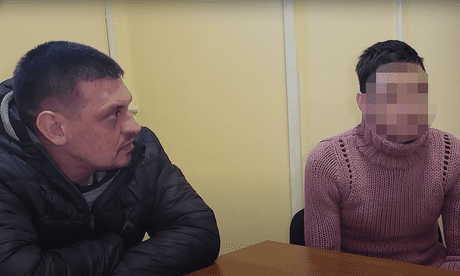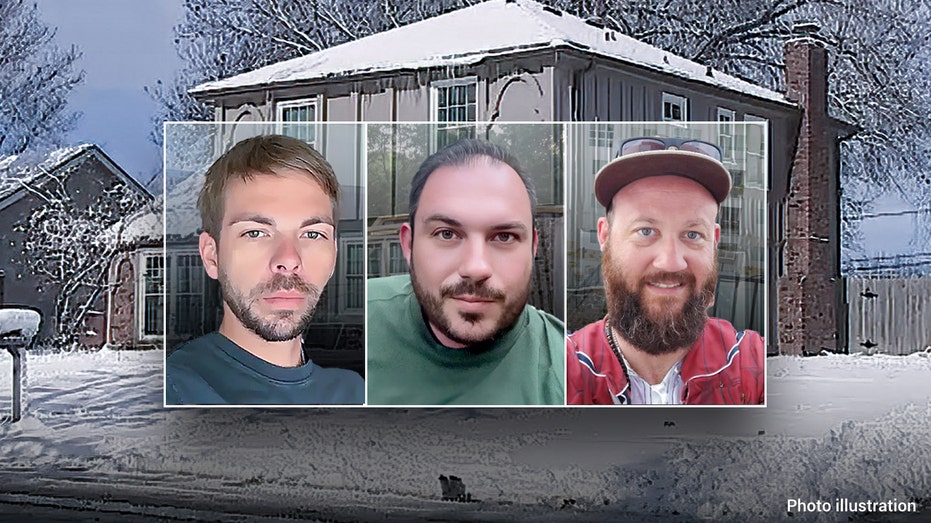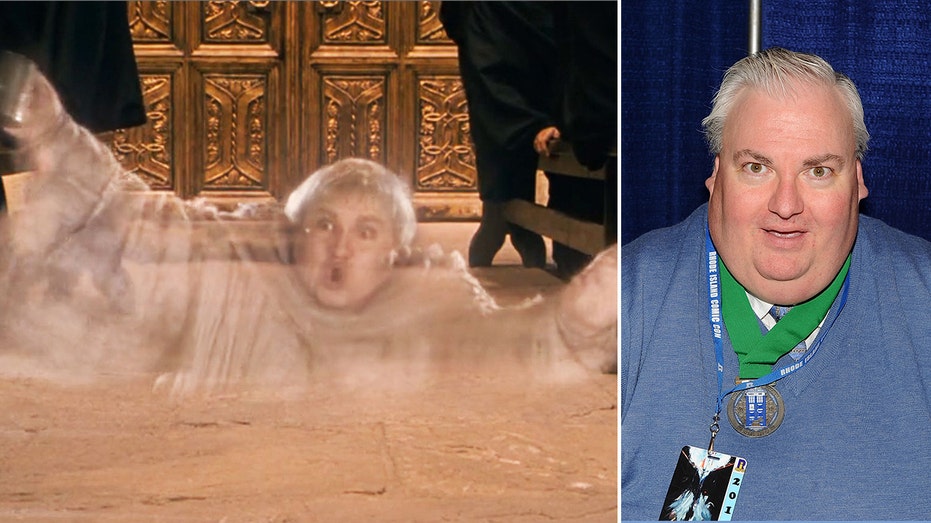- by foxnews
- 11 Mar 2025
‘Often a Russian mother has a TV for a brain’: Ukraine YouTuber films PoWs calling home
‘Often a Russian mother has a TV for a brain’: Ukraine YouTuber films PoWs calling home
- by theguardian
- 06 Apr 2022
- in news

For some he is exposing Russians to the truth of Vladimir Putin's war, while to others he is traipsing over the Geneva conventions by parading prisoners of war on the internet.
Volodymyr Zolkin, 40, an amateur video blogger before the war, has become a YouTube hit in Ukraine and elsewhere for his 50-plus interviews with captured soldiers and pilots, which he says are an attempt to cut through the censorship to inform Russian families about the fate of relatives.
"You [only] have to believe the facts," Zolkin told the Guardian in an interview via Skype from an undisclosed location. "Russia does not give or show anything. We immediately created an honest YouTube channel. We show everything here - photos, videos, all data. We show real people calling their parents. You don't need to trust anyone, believe the facts."
There is little doubt about the reach of the videos. The most popular ones have been viewed more than a million times, and the average is 400,000-500,000 views.
An hour-long conversation with a Russian pilot, major Alexander Krasnoyartsev, who was involved in the bombing of civilians in the besieged city of Chernihiv has even been given English subtitles.
Lawyers have suggested, however, that making and sharing such recordings is likely to be in violation of the third Geneva convention, designed to protect prisoners from humiliation and risks to their safety.
"These people are crying and thanking us for what we are doing," Zolkin said in response. "Sometimes I am asked if we are violating the Geneva conventions. It says - you can not mock the prisoners. Please tell me where the Geneva convention says that you can not do a humanitarian and peacekeeping mission."
It all started, he said, with frustration at the lack of information reaching people in the Russian federation. With the help of a friend, Victor Andrusiv, an adviser to the Minister of Internal Affairs, he started calling the relatives and friends of Russian soldiers who had sought information through a Ukrainian government Telegram channel set up to tell them of the fate of their loved ones.
Zolkin called the relatives live on camera and challenged them about the Russian government's behaviour.
"But the Russian special services (FSB) began to send fake phone numbers and fake data of soldiers and spam," Zolkin claimed. "I would call the mothers but after three days I started listening to standard answers - we are not interested in politics, we know nothing and everything. I realised that mothers were being pressured by Russian special services."
He added: "I said [to the government], give me the opportunity to communicate with the prisoners and let them call their mothers."
His first such interview was on 18 March with 20-year-old soldier, Pavel Kravchenko, who said he had gone to war without any understanding of Putin's reasons.
"We were in a convoy," he told Zolkin. "When we crossed the border, we asked the commander: 'What is it for?' He said: 'Don't ask unnecessary questions'. We were surrounded, we didn't even fight back, we surrendered immediately. The convoy got destroyed immediately. I didn't want to die. I wanted to live."
Zolkin now interviews around 10 Russian prisoners of war a day in locations across the country, only some of which have been broadcast.
The pale, evidently nervous, prisoners are asked to confirm that they have agreed to the interview and its broadcast, before being asked to give an account of their military background and the events that led to their capture, along with their thoughts on the war. YouTube has blocked interviews where evidence is lacking that the interviews are voluntary.
The prisoners are then asked to call their family and friends at home. The reasoning is that the mothers of captured soldiers would truly listen to what their sons were saying about the truth about the war, Zolkin said.
The majority, he says, are like the first interview he did with Kravchenko. "To be honest, I didn't know how to prepare for these interviews," he said. "I came and saw a child in front of me. Among all the people I talked to, 80% are actually children. Some of them left unarmed. Some of them have never shot or been shot at in their lives. No combat training."
He added: "Often a Russian mother does not ask her son about his health, but immediately tells us the propaganda she was told on Russian television. They have a TV instead of a brain."
Zolkin is not aggressive with the prisoners, although he says that he personally believes that Krasnoyartsev, who shot dead a farmer who had tried to take him captive after he was shot down over Chernihiv, is a "mass murderer".
But he added: "I have mixed feelings. On the one hand, I saw that these Russians were in fact children. But on the other hand, I saw Ukrainian civilian children who did not attack anyone. And they are killed. [The Russians] destroy whole houses. You have to understand."
- by foxnews
- descember 09, 2016
High-end vacation resort bans children to achieve 'tranquil environment'
The Alila Marea Beach Resort, located in Encinitas, California, has announced that it's no longer accepting kids and is transitioning to an adults-only vacation spot.
read more


